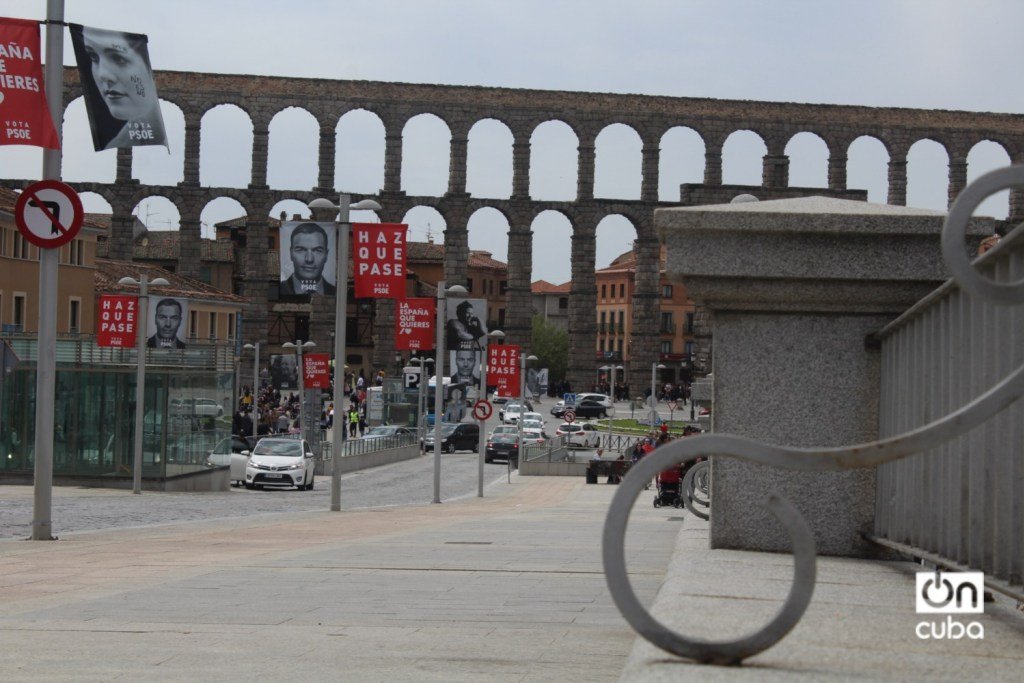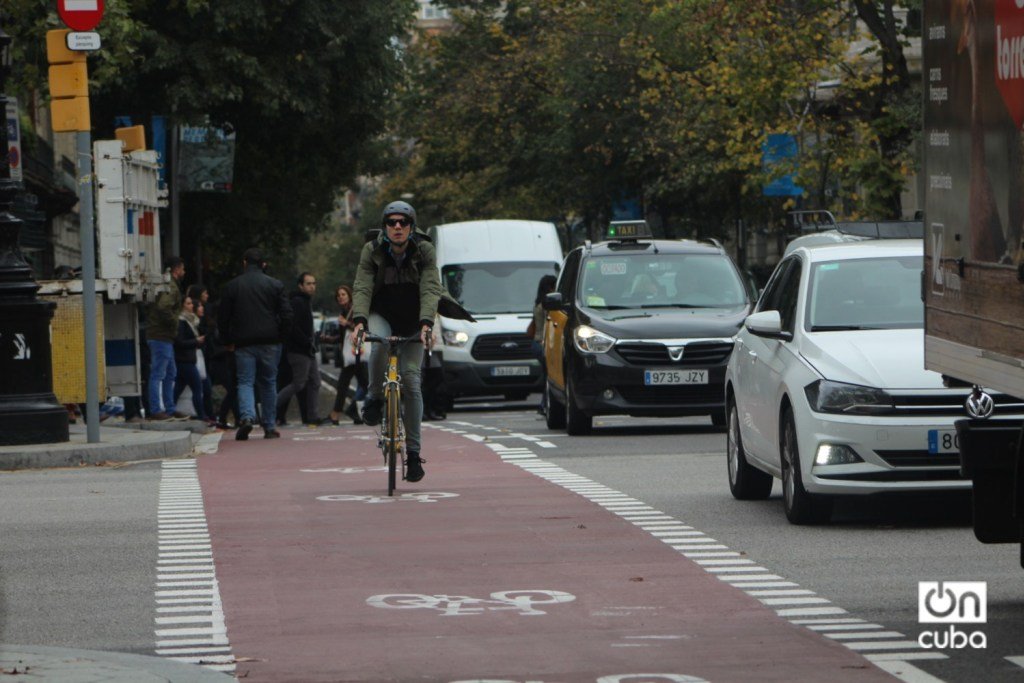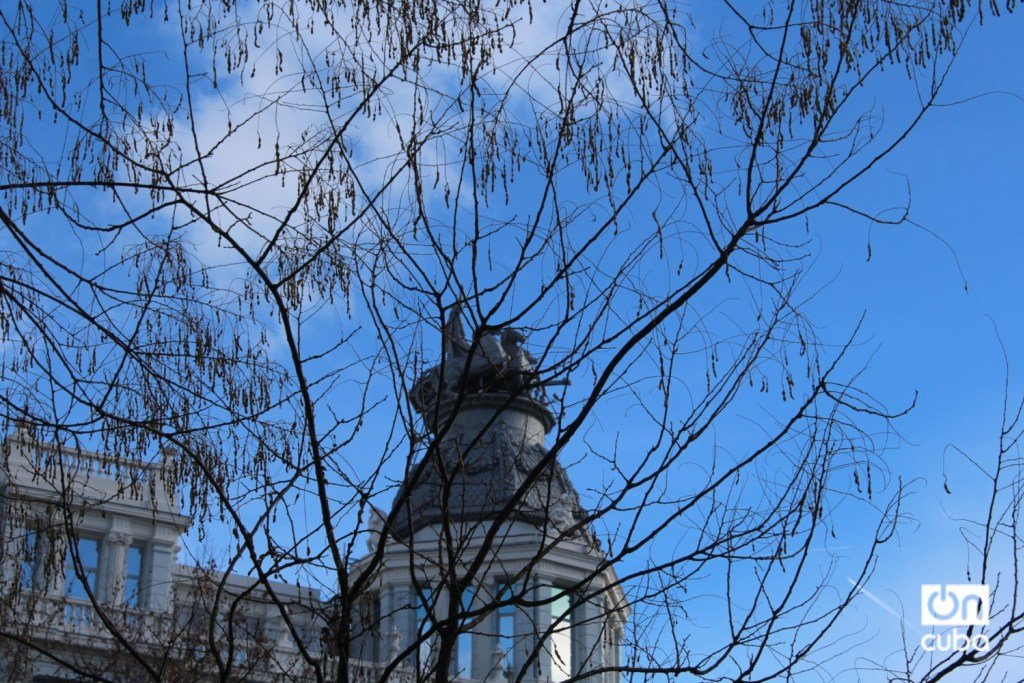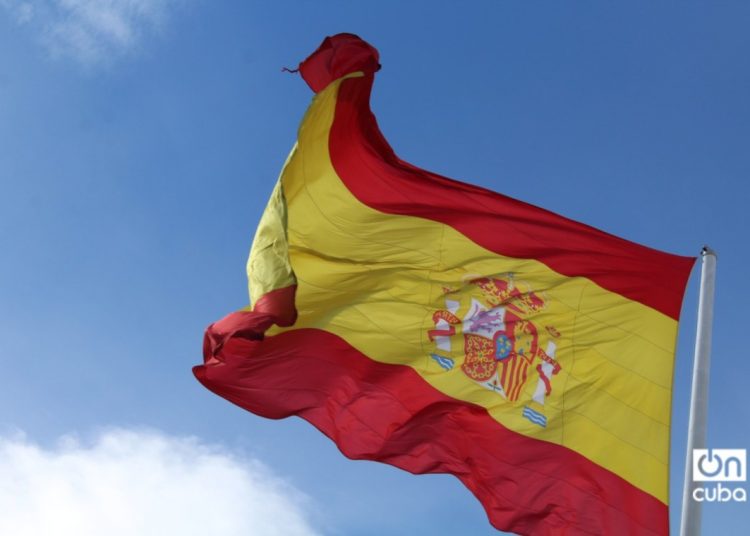Title III of the Helms-Burton Act came into force this May 2, a measure that seriously compromises Spanish investments in Cuba. Simultaneously, Venezuela is still immersed in its umpteenth episode of street tensions. The self-proclaimed president of Venezuela, Juan Guaidó, last Tuesday, April 30, released Leopoldo López, leader of the Venezuelan opposition under house arrest. The liberation was led by Guaidó himself with the support of a tiny group of soldiers from the Venezuelan army opposed to the government. Leopoldo López sought refuge in the Spanish embassy, and the country that gives him shelter has just come out of a general election and is in the hands of an acting government.
Spain’s position in Cuba and Venezuela is, at this moment, extremely compromised and not only because of the situation of the electoral processes in which the country is immersed, but also because of the impossibility of making their interests in Caracas and Cuba compatible with its relations with the United States and due to its contradictions in recent months. However, the scenario could have been more complicated if the general elections of last April 28 had precipitated the formation of a government diametrically opposed to the current one.
Two days before the situation in Venezuela again became heated and four before Spain’s economic interests in Cuba entered a vortex unknown to date, more than 36.8 million Spaniards were ordered to the polls in the 14th general elections in democracy. On this occasion, not only was the governance for the next legislature at stake, but also the way of understanding the country and its external projection, since for the first time an extreme right-wing force (Vox) could condition a government made up by the liberals of Citizens (Cs) and the conservatives of the Popular Party (PP).

The new balances
Finally, the sum of these three forces did not reach an absolute majority, established in the Spanish parliament as 176 seats. The right-wing formations of the state sphere stayed in 147 seats, to which it would be necessary to add the two obtained in the Navarra autonomous community by the electoral candidacy Navarra Suma, in which the PP, Cs and a conservative force called Unión del Pueblo Navarra were integrated.
For its part, the Spanish Socialist Workers Party (PSOE) and Unidos Podemos (UP), together with their different confluences, managed to get 165 seats. They were eleven seats from the absolute majority. Pedro Sanchez, current president of the Spanish government and candidate of the Socialist Party, was ultimately the big winner, as he won 123 seats, leaving the second force, the PP, as the great loser of the day, at a more than considerable distance. The PP reaped the worst results in its history, which leaves its leader, Pablo Casado, in a compromised situation. The 66 seats of the PP disqualify him to establish an alternative government and, at this moment, his task is focused on containing the internal crisis of the party, on delegitimizing Vox and on consolidating itself as the first opposition party. One condition, that of leading the opposition, which is already putting the Cs into question, because with its 57 seats, compared to the 32 that it obtained in the general elections of 2016, the possibility is open for them to start being perceived as the great alternative of the center right at the state level.
The Socialists, led by Pedro Sánchez, thus stand as the only possibility of government. Sánchez is the only candidate capable of getting to the Moncloa and may do so with the external support of UP or through a coalition government in which a member of the purple party is integrated. Moreover, these eleven additional seats that PSOE and UP require to invest Sánchez could be provided by the nationalist, independence, sovereignty and regionalist parties of the Basque Country, Catalonia, Canary Islands, Valencian Community or Cantabria, well in the first round, through the affirmative vote, or the second, where the positive positioning would not be necessary and abstention would suffice. Abstention in the second round of Esquerra Republicana de Catalunya (ERC), with fifteen seats, would be enough to seal the investiture. In addition, both Junts per Catalunya, the formation of the Catalan center right, as the Basque Nationalist Party (PNV) and EH-Bildu in the Basque Country, with seven, six and four seats, respectively, could be willing to facilitate the investiture. All of them, in a veiled or overt way, have made it clear during the electoral campaign. The negotiations to carry it out, especially in the case of the Catalan parties, will not be easy; however, the chances of Sánchez being invested are very high, since there are several sums that would enable such a possibility.
The arithmetic to carry out the sum becomes the backbone of the political debate today in Spain. However, the final resolution will not be immediate, as there will be a next electoral round: the municipal, autonomous and European elections, to be held on May 26.

Making government and defining the course
A resolution that will have to face two fundamental questions. First, to specify the conditions in which the investiture will take place, first or second round, where the search for abstention of the Catalan and Basque forces in the second round will be the central theme. And second, to clarify the type of government for the next four years: government in minority of the PSOE, a line for which the Socialists are betting at the moment, or coalition government with UP, a means by which these are inclined, but that bothers the PSOE, because it would lose the possibility of establishing a variable geometry throughout the legislature through a specific or situational agreement with the political forces that are situated on its right flank. The PSOE has presented itself before the Spanish public opinion as the champion of moderation and leaning too much towards its left flank could blur this idea that has given it excellent electoral results.
Pedro Sánchez will therefore have to move in the maelstrom of the agreement to reach his investiture and he will have to do it, with different intensity and scope, with the UP, a priori the favorite partner, and with the political forces of Catalonia and the Basque Country, where the negotiation is expected to be tougher.
In addition, the scenario of an agreement with the Cs, something that was evident throughout the electoral campaign, continues to weigh on the headquarters of the Socialists, especially when it was confirmed that the sum of both formations would form a solid government with a broad majority. However, this option, the one favored by the economic powers inside and outside the country, does not have the support of the bases of both formations nor the approval of the majority of the elites of the parties, especially in the case of the Cs, more devoted to settling their hegemony within the center right in Spain than to opting for a backing of the Socialists, something that would ruin their ambition to present themselves as the future reference of the Spanish right-wing parties.
The type of government that finally reaches the essential consensus will have its consequences in foreign policy and will have them especially in the Latin American sphere, where the diversity of opinions, among the main political forces at the state level, is much more marked than in the case of the policy to be followed on the European front.

Cuba and Spain: what could have happened on April 28
Cuba and Venezuela, above other countries, had a lot to lose in these Spanish general elections, as the result directly affected their relations with Spain and the European Union (EU). Both countries, together with Nicaragua, are immersed in a Washington-based political and economic offensive, and with ramifications in many Latin American capitals, which makes it essential to have divergent positions in Europe to those proposed by the White House. A complement that seems necessary for both Caribbean countries, because the support they can receive from Beijing and Moscow may not be enough.
Thus, the possibility that an alternative government to the Socialists could be orchestrated in Madrid through the support of the PP, Cs and Vox was not a topic alien to the interests of Havana, Caracas and also Managua. In the specific case of Cuba, the possibility of a tripartite right-wing government or a similar recipe would have questioned the steps taken by the Socialist Party and the Sánchez government since the motion of censure that evicted Mariano Rajoy from the Moncloa almost a year ago.
Undoubtedly, the Socialists’ position on Cuban issues differs from that of the PP and its possible allies, Cs and Vox, something that was made explicit in Pedro Sánchez’s trip to Havana in December of last year. The PP led by Pablo Casado is no longer under the baton of Mariano Rajoy, as majority sectors within the current PP, especially those that were championed in the immediate past by Esperanza Aguirre or former President José María Aznar and who have in the vicinity of Pablo Casado a strong ancestry do not agree with the attitude with respect to Cuba deployed by Pedro Sánchez in the last year.
For its part, practically all of the sensitivities that inhabit Vox, coordinated through the ideological confluence with the “Trumpism” and the presence of figures such as the Spanish-Cuban Rocío Monasterio, president of the party in the Community of Madrid and daughter of Cuban exiles, would reinforce the new position of the PP.
Something that would be strengthened in turn by the liberal inclinations of the Cs and their decided bet on the Venezuelan opposition. A government coordinated around these three forces would have placed Spanish diplomacy in clear synch with the White House and with the current members of the Lima Group.
This scenario was open until the night of April 28 and there is no doubt that Spain’s position would have suffered an unexpected turn on issues related to Cuba, and fundamentally to Venezuela.

Spain and the EU in the face of the Cuban issue
The position of the current Spanish government regarding Cuban issues, which the White House links indissolubly to the Havana, Caracas, Managua axis, has been cautious and has tried to seek support from the EU so that its lack of harmony with the United States have a smaller scope in the bilateral plane. Unlike the U.S. position, in which Nicaragua, Venezuela and Cuba are part of a unit that must be combatted, Spain makes a clear differentiation between the three cases and disagrees with the U.S. position regarding the application of sanctions and the possibility of direct intervention or support to some kind of military coup.
The Spanish government has shielded itself in the EU to defend its interests and strengthen its position, but it has not achieved success in terms of coordinating a common position in which all European countries agree.
Several countries in Europe paralyzed cooperation with Nicaragua and Pedro Sánchez opted to continue it based on that differentiation between governments and peoples.
On the subject of Venezuela, although the Spanish government has been much harsher and has recognized the self-proclaimed Guaidó, it has always maintained that the rupture or intervention by force would harm the Venezuelan population, and the Spaniards who reside there and contribute to the definitive destabilization of the country. This discourse has led it to paroxysm on the Cuban issue, where it has been advocating for agreement and dialogue to resolve differences.
Undoubtedly, these arguments do not have the support of all the EU countries. This compromises Spain’s room for maneuver and leads to frequent contradictions in the face of the impossibility of achieving a common line of action at the European level.

Spain and the United States: two points of view
Sánchez’s Spain, as previously happened with Zapatero’s, clashes head-on with the proposals sponsored by the U.S. administration on Cuban issues and this has become evident in recent months, when Donald Trump and his advisory group for Latin Americans issues have launched the toughest offensive in recent years and believe that economic collaboration with Cuba, Venezuela and Nicaragua is an obstacle to the implementation of a joint plan to ultimate the regimes of these three countries.
In the last meeting held between U.S. Secretary of State Mike Pompeo and Spanish Foreign Minister Josep Borrell, held in Washington in early April, the differences between the governments of both countries were made explicit. This meeting between the foreign ministers of Spain and the U.S. did nothing but make explicit the differences between the two Foreign Ministries in relation to Cuba and Venezuela and also exposed, as usual, the contradictions of Spain’s position, especially in the case of Venezuela. Borrell tried to make it clear that the sanctions against Venezuela had an impact on the interests of Spain and that the implementation of Title III of the Helms-Burton Act would cause a huge impact on Spanish capital invested in Cuba. The disagreement with the United States was patent and Minister Borrell did not try to hide it.
A few days after this meeting, Federica Mogherini, high representative of the European Union for Foreign Affairs and Security Policy, endorsed the position of Spain and the rest of the European countries regarding the possible damages that the implementation of Title III of the Helms-Burton Act could cause. In this regard, she warned that the EU would take appropriate measures to defend European interests in Cuba.
The sanctions against Cuba are one more step in the total reinforcement of the blockade and also suppose a mechanism of pressure to try to inhibit Cuba’s presence in Venezuela. A presence that seems undesirable in the U.S. strategy of pushing the Maduro regime into the abyss.

What Cuba and Spain need
Spain, with an acting government, in the middle of Venezuela’s hornet’s nest, with the unrest of recent days, and since the enactment of Title III of the Helms-Burton Act, can play an important role in the resolution of the Caribbean’s conflicts.
However, in order to do so, it needs a stable government and needs to form it as soon as possible. The possibility of adding the UP to a coalition government or having its support would improve its ability to approach Caracas and Havana. However, it would greatly complicate the already tense relations with the United States.
During the last decades, with the exception of the eight years of José María Aznar’s government, Spain’s position on Cuba has always been misunderstood by the United States. Now, after the conflict in Venezuela, Spain’s position is more committed.
Cuba needs the EU to continue deepening its reform program and Spain needs a solid government, coordinated through the socialists, the great winners in the last elections, to accompany it in its process.
Hence the importance for Cuba of a Spain freed from the electoral processes in which it is immersed and already constituted with a government that allows it to undertake its commitments in the Latin American sphere. Cuba’s relations with the EU will be reinforced as soon as this happens and bilateral relations with Spain will also do so.










